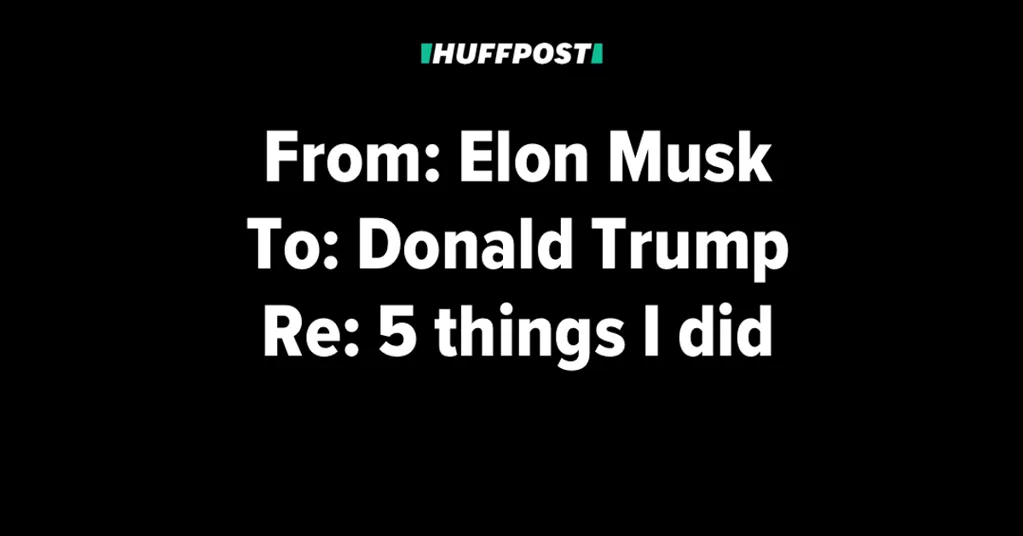Elon Musk -- world's richest man, major government contractor, top donor and adviser to the president of the United States and guy who pays to cheat at video games -- ended his tenure as a special government employee on Friday with a cheerful goodbye and thank-you from President Donald Trump.
Asked by a reporter Friday if his time in government was worth it and what he would have done differently, Musk, sporting a bruise over his right eye, complained his "Department of Government Efficiency" had become a "bogeyman" and seemed to concede defeat to the federal bureaucracy.
"There are many things that occur in the government because it's, it's the banal evil of bureaucracy. It's sort of the frankly, largely, largely uncaring nature of bureaucracy," he said.
So was it worth it?
"I think it was an important thing," Musk said. "I think it was a necessary thing and I think it will have a good effect in future."
One of Musk's key early initiatives was a requirement for all federal government employees to send emails to their bosses outlining five things they accomplished the week prior. Musk originally threatened to fire any employee who didn't send such an email, but later backed down. Workers at the Social Security Administration are still sending the emails as of this week, while the Department of Defense asked employees for their final submissions this week as well.
In honor of Musk's departure, HuffPost has compiled a list of five things Musk could point to as accomplishments in a sign-off email to Trump.
In a February appearance at the Conservative Political Action Conference, the president of Argentina, who is a darling of right-wingers, handed Elon Musk a power tool and, in so doing, created the indelible image of the Musk era of Trump's second term.
"This is the chainsaw for bureaucracy," Musk said as he waved the chainsaw around, posing for the photographs that would be used for hundreds of news stories about his efforts to cut federal agencies. The chainsaw at once symbolized Musk's power and his recklessness.
Musk and his team had already pushed federal agencies to fire thousands of employees and halt grants, causing courts to jump in and order the money unfrozen, but not before nonprofits that oversee things like Meals on Wheels and heating assistance warned their services were imperiled. Courts ordered federal agencies to rehire workers only for the Supreme Court to put the rehiring on hold while the case moves through lower courts.
On Friday, a reporter asked Musk about the bruise on his face. He said his 5-year-old son did it.
"I said, 'Go ahead, punch me in the face,' and he did," Musk said.
Musk's signature achievement as head of DOGE was the dismantling of the U.S. Agency for International Development, the part of government most contrary to Trump's notions of "America First." Musk bragged he put the agency "into the wood chipper." (This was before he'd been given the chainsaw.)
The decapitation of the agency resulted in the cutoff of lifesaving aid to people, including children, in poorer countries around the world. A Boston University professor estimates more than 300,000 people, two-thirds of them children, have already died in the four months since the cuts were implemented.
Musk took big swings against federal agencies and picked some questionable targets, including the Social Security Administration, purveyor of monthly benefits to more than 70 million Americans. He falsely claimed Social Security was full of fraud and championed cuts to services Democrats used to portray Musk as the biggest villain of Trump's government.
"What we found was happening was that if there were any cuts anywhere, people would assume that was done by DOGE," Musk said Friday. "And so we became, essentially the DOGE bogeyman, where any cut, anywhere, would be ascribed to DOGE."
Musk's approval rating tanked, sinking lower than the president's, and so did the stock performance of his electric car company, Tesla. He mused last week that he might have spent too much of his time on politics.
On Friday, Trump vouched for his top campaign funder and efficiency czar.
"He's done a lot of things," Trump said. "Frankly, I don't think he gets credit for what he's done. He's a very good person. He happens to be a really good person who loves the country."
Musk claimed during the campaign he could easily save the federal government $2 trillion out of its nearly $7 trillion annual budget simply by rooting out fraud and waste. After Trump won, Musk scaled his ambition down to $1 trillion in savings. On Friday, Musk conceded that DOGE had come up with only $160 billion in savings, though the estimates posted on the DOGE website have frequently proven unreliable.
"I'm confident that over time we'll see a trillion dollars of savings," Musk said Friday.
Much of what generated public opposition to DOGE was the agency's seemingly relentless quest for more data. For privacy reasons, government data is often siloed off, with access restricted only to key decision makers at different agencies. DOGE pushed aside agency heads and cybersecurity professionals to get previously protected data from the Internal Revenue Service, the Department of Health and Human Services and the Social Security Administration.
